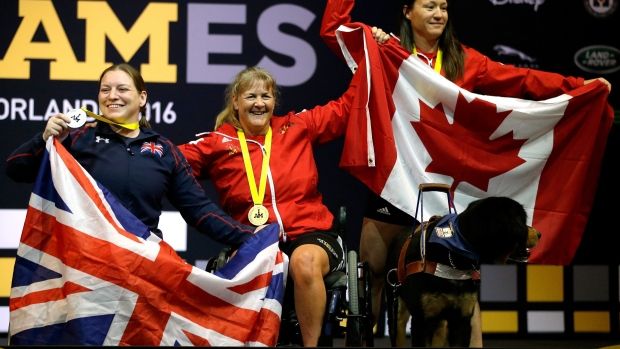CANADA: Canada has been completely infiltrated by Klaus Scwhab’s World Economic Forum and the policies of the Trudeau government are now reflecting the full horror of the Davos agenda.
Depopulation is the primary goal of the World Economic Forum in the coming years and Canada has a head start on the world in that regard. According to the latest figures, Canada euthanized an astonishing 10,000 people last year.
That’s 3% of total deaths, an increase of a third on the previous year. And it’s likely to keep rising. Next year, Canada is set to allow people to die exclusively for mental health reasons, and there are discussions about allowing children to euthanize themselves.
Canada, a country that prides itself on its open-mindedness and tolerance, has the most permissive rules on euthanasia in the world – and the results have been frankly terrifying.
DailyMail report: Only last week, a jaw-dropping story emerged of how, five years into an infuriating battle to obtain a stair-lift for her home, Canadian army veteran and Paralympian Christine Gauthier was offered an extraordinary alternative.
A Canadian official told her in 2019 that if her life was so difficult and she so ‘desperate’, the government would help her to kill herself. ‘I have a letter saying that if you’re so desperate, madam, we can offer you MAiD, medical assistance in dying,’ the paraplegic ex-army corporal testified to Canadian MPs.

Ms. Gauthier, who injured her back in a training accident in 1989, competed for Canada in the 2016 Paralympics in Rio de Janeiro and the Invictus Games the same year.
Despite being confined to a wheelchair with a musculoskeletal disorder which affects her legs, backs and hips, she is a gold medal-winning para-canoeist and won a silver medal participating in Canada’s women’s ice sledge hockey team.
She is very far from most people’s idea of a hopeless case and yet her government’s Department of Veterans Affairs didn’t hesitate to suggest that she might like to end her life if the battle to get a ramp was proving too much for her.
Ms. Gauthier said she recently expressed her concerns about it in writing to Canadian prime minister Justin Trudeau. Mr. Trudeau described what happened to her as ‘absolutely unacceptable’ even as his government admitted that her case wasn’t unique.
Around five cases of military veterans being offered assisted euthanasia have been referred to Canadian police and officials urged others who’d received the same treatment to come forward.
Veterans Affairs minister Lawrence MacAulay tried to blame a single female official, and yet even if that is the case she hardly dreamt up the appalling suggestion out of thin air but offered a fatal solution that experts say is becoming far too common in Canada.
Alan Nichols, for instance, was a 61-year-old British Columbian with a history of depression and other medical issues – though none of them life-threatening – who was hospitalized in 2019 over fears he might be suicidal.
Although he asked his brother, Gary, to ‘bust him out’ as soon as possible, within a month of going into hospital he’d submitted a request to be euthanized. He listed only one health condition – hearing loss – as the reason but that was enough to satisfy his keepers and he was killed. ‘Alan was basically put to death,’ said his brother Gary.
Erin Smith said her 71-year-old father, Rod McNeill, went to an Ontario hospital after suffering a fall. A month later, he had been euthanized. She says the doctors responsible didn’t even get hold of his medical records from his own physician.
He was subsequently euthanized for a condition – end-stage chronic obstructive pulmonary disease – that an autopsy shows he didn’t have, she said.
Sheila Elson, the mother of a 25-year-old woman with cerebral palsy said a hospital doctor in Newfoundland actually told her she’d be ‘selfish’ if she didn’t consider pursuing the euthanasia option.
Roger Foley, a patient with a degenerative brain disorder, secretly recorded staff at his hospital in London, Ontario, mentioning euthanasia.
In one recording, the hospital’s director of ethics told Mr Foley it would cost ‘north of $1,500 a day’ to keep him in hospital, adding: ‘My piece of this was to talk to you, (to see) if you had an interest in assisted dying.’
Mr Foley said he had never previously mentioned euthanasia, but the hospital said there is no ban on staff raising the issue.
These damning accounts were obtained in an investigation by Associated Press and almost every other week has brought fresh controversy surrounding Canada’s right to die policy and further evidence that a practice that was once intended as the last-ditch solution to only the most incurable and terminal diseases is slipping dangerously out of control.
by Baxter Dmitry
Join: 👉 https://t.me/acnewspatriots
The opinions expressed by contributors and/or content partners are their own and do not necessarily reflect the views of AC.NEWS
Disclaimer: This article may contain statements that reflect the opinion of the author. The contents of this article are of sole responsibility of the author(s). AC.News will not be responsible for any inaccurate or incorrect statement in this article www.ac.news websites contain copyrighted material the use of which has not always been specifically authorized by the copyright owner. We are making such material available to our readers under the provisions of “fair use” in an effort to advance a better understanding of political, health, economic and social issues. The material on this site is distributed without profit to those who have expressed a prior interest in receiving it for research and educational purposes. If you wish to use copyrighted material for purposes other than “fair use” you must request permission from the copyright owner. Reprinting this article: Non-commercial use OK. If you wish to use copyrighted material for purposes other than “fair use” you must request permission from the copyright owner.
Disclaimer: The information and opinions shared are for informational purposes only including, but not limited to, text, graphics, images and other material are not intended as medical advice or instruction. Nothing mentioned is intended to be a substitute for professional medical advice, diagnosis or treatment.























![Tucker Carlson Released an ALARMING Message … [Published Yesterday]](https://ac.news/wp-content/uploads/2024/04/download-3-120x86.jpg)






















Discussion about this post